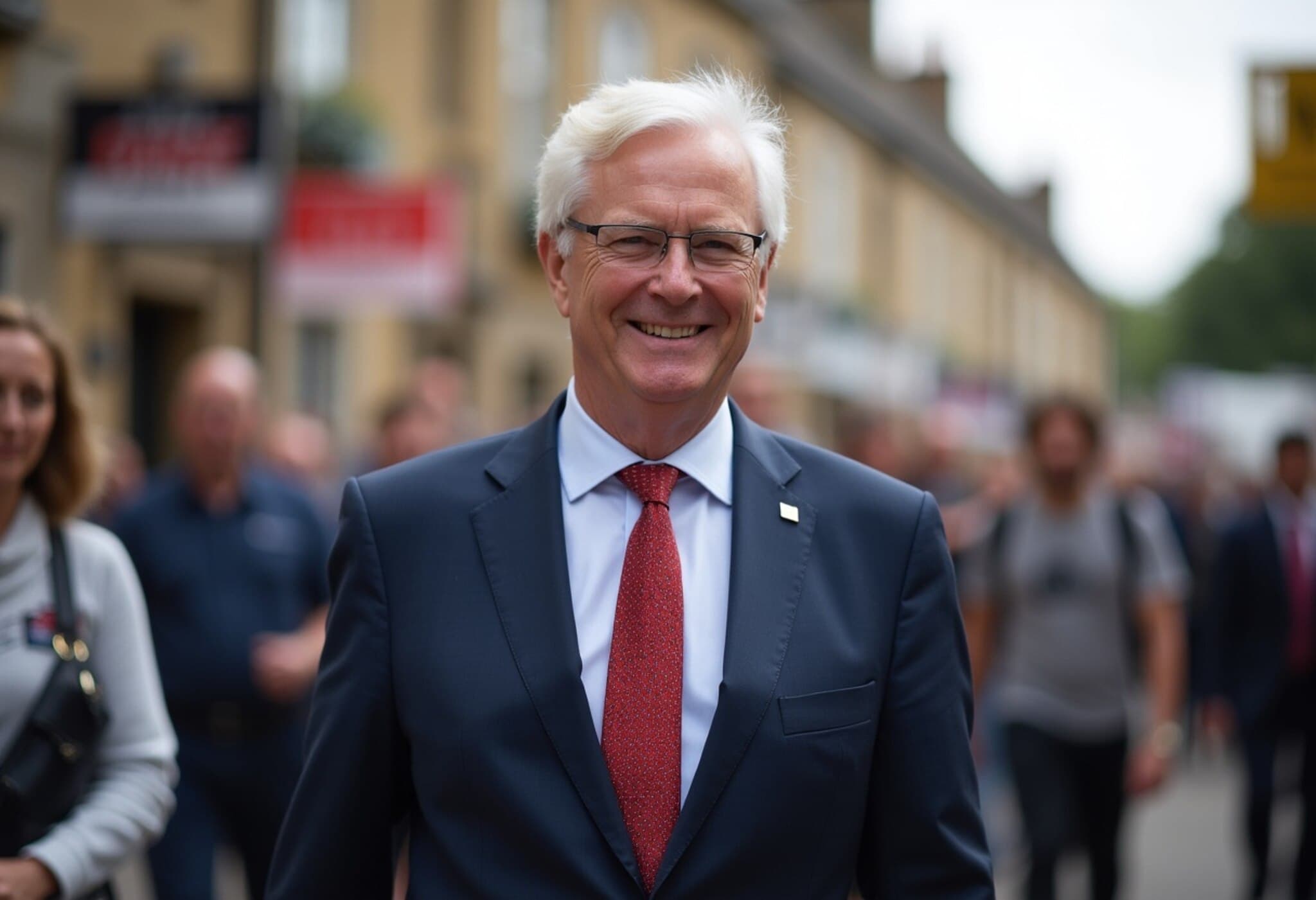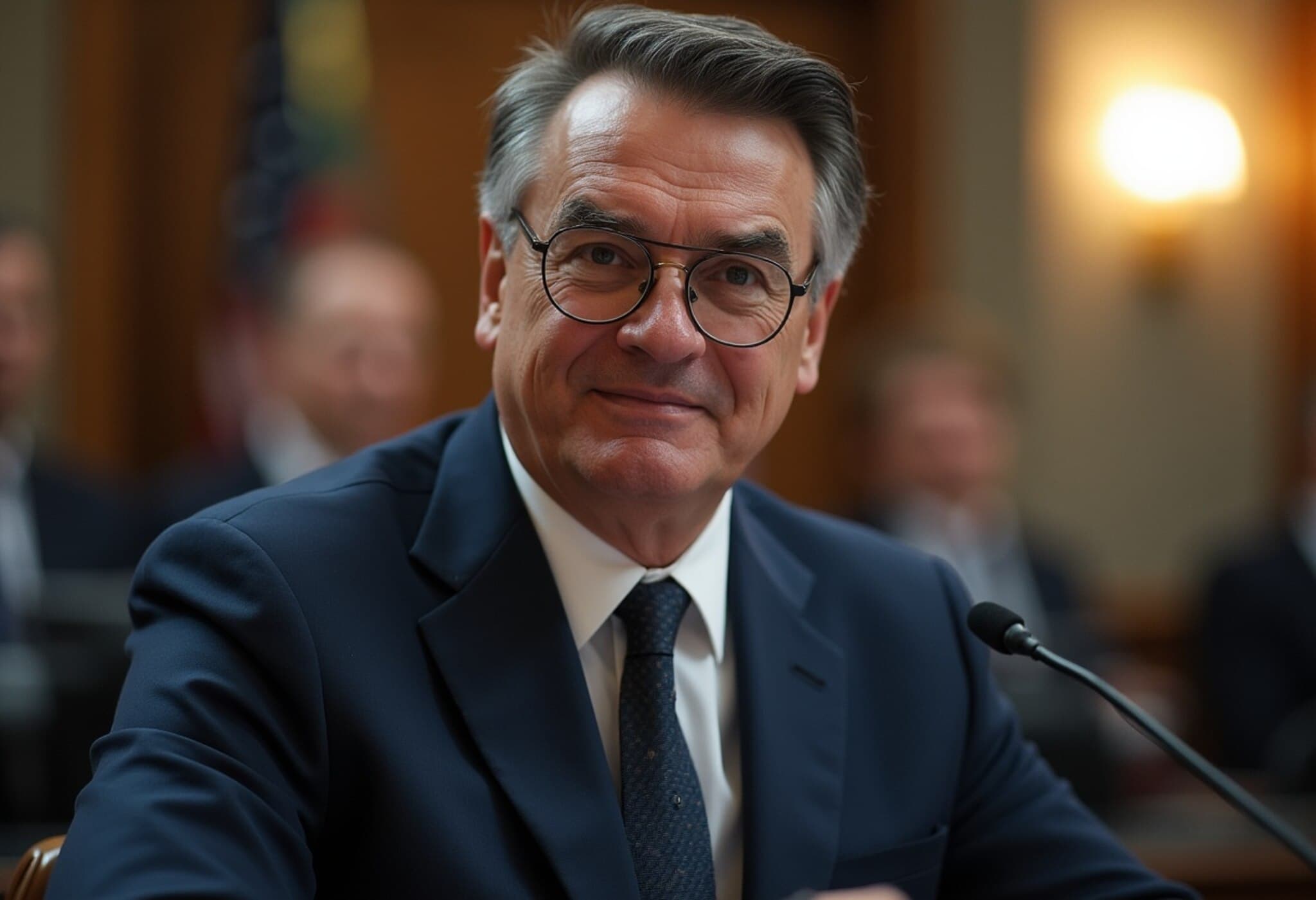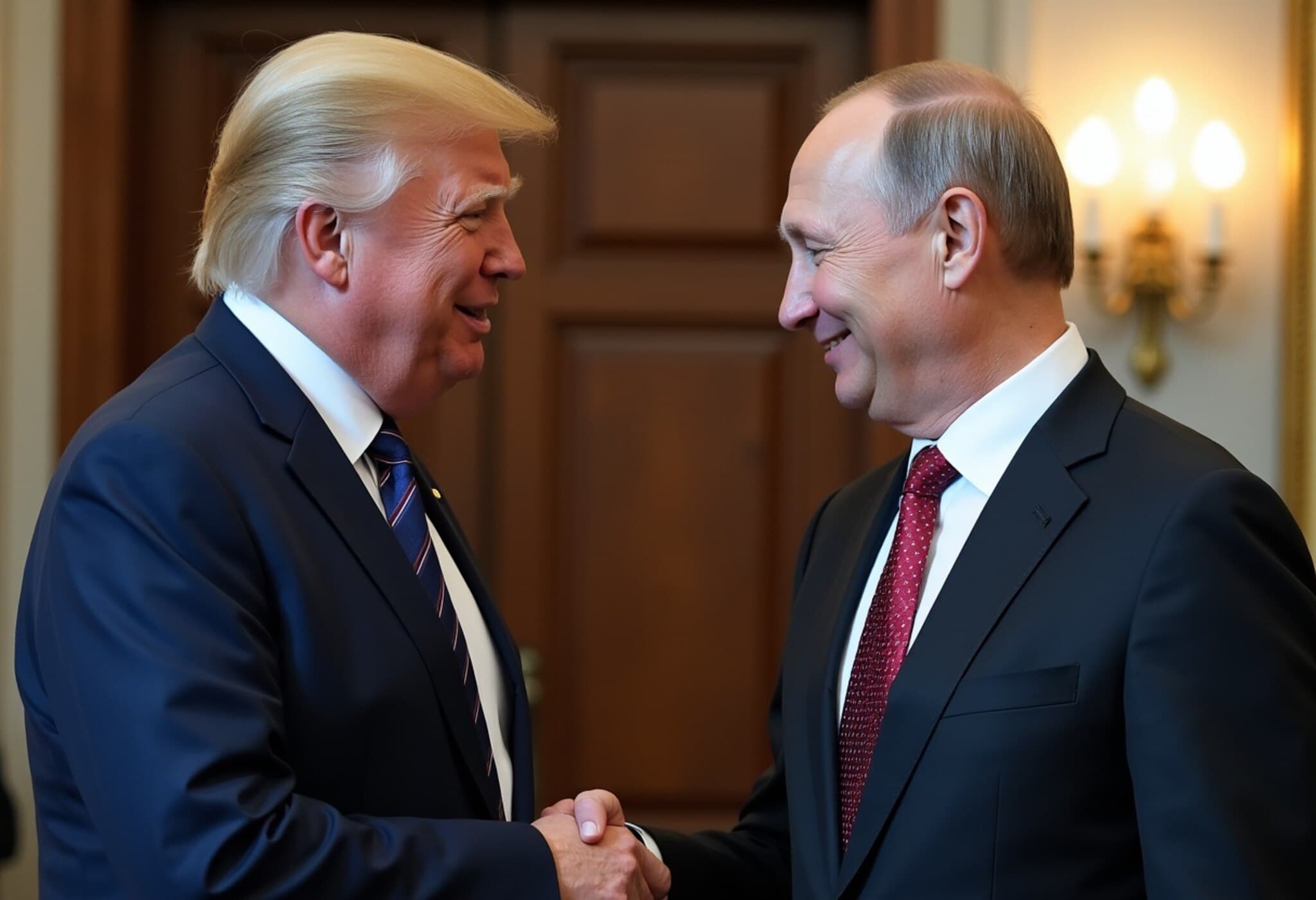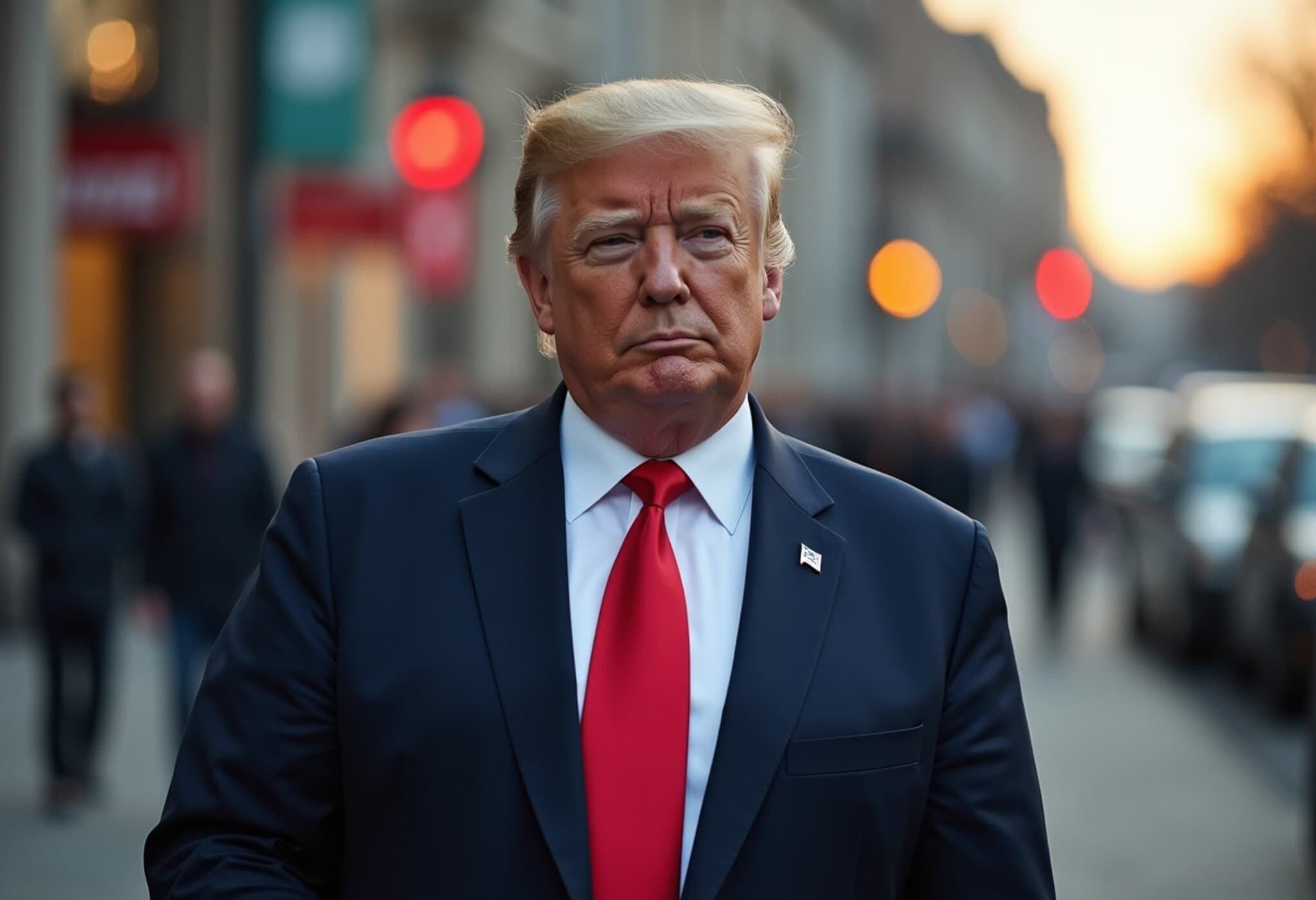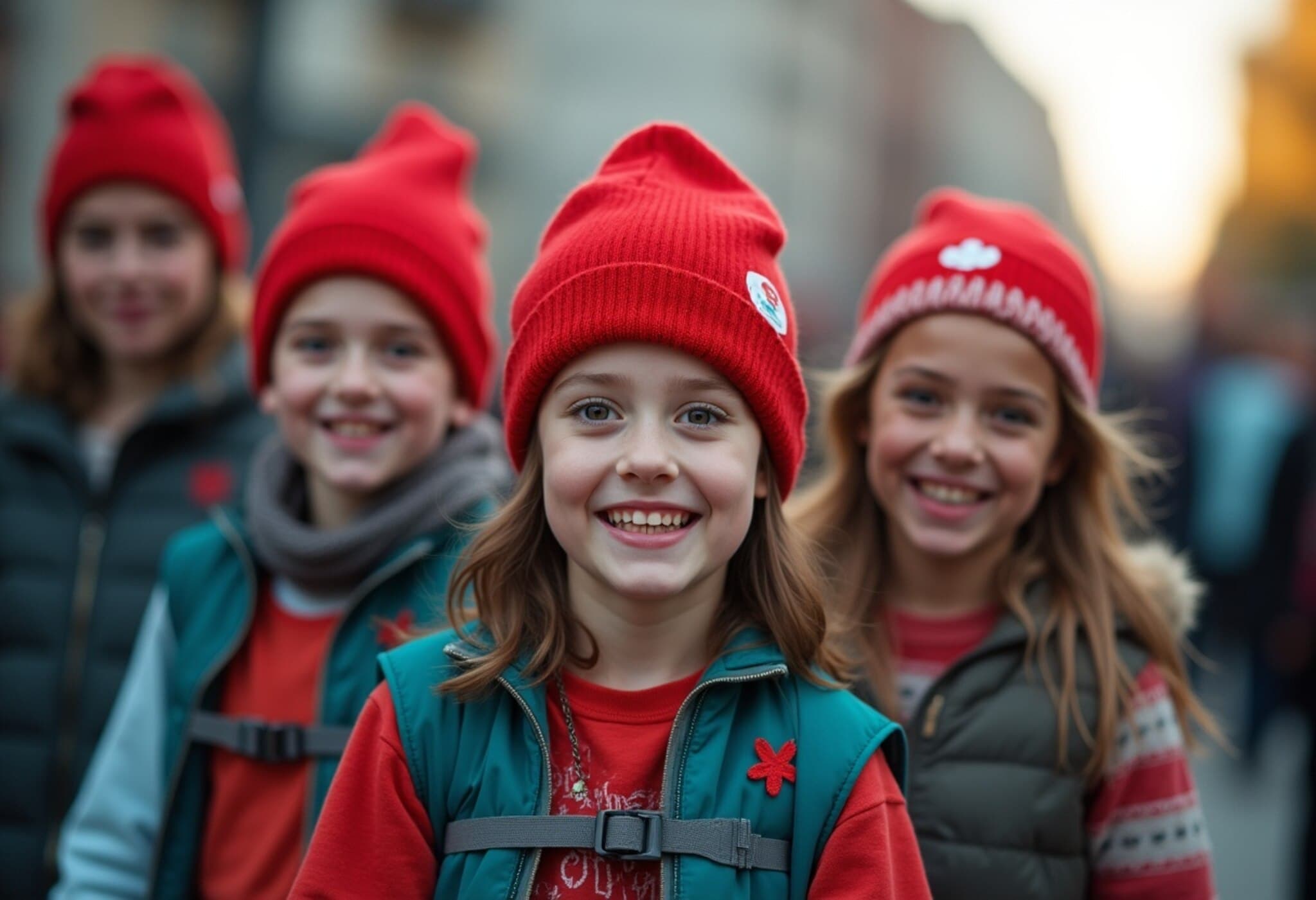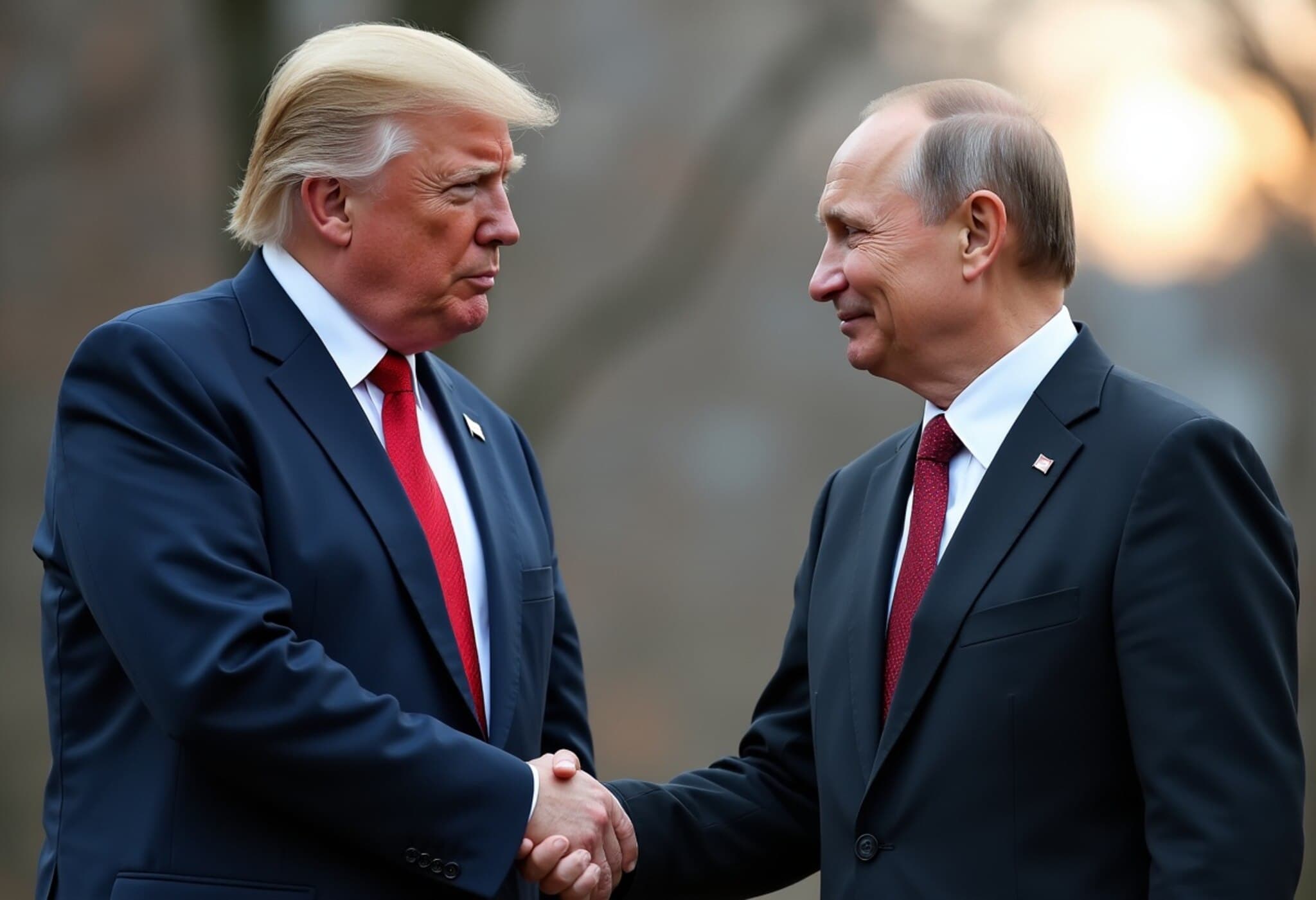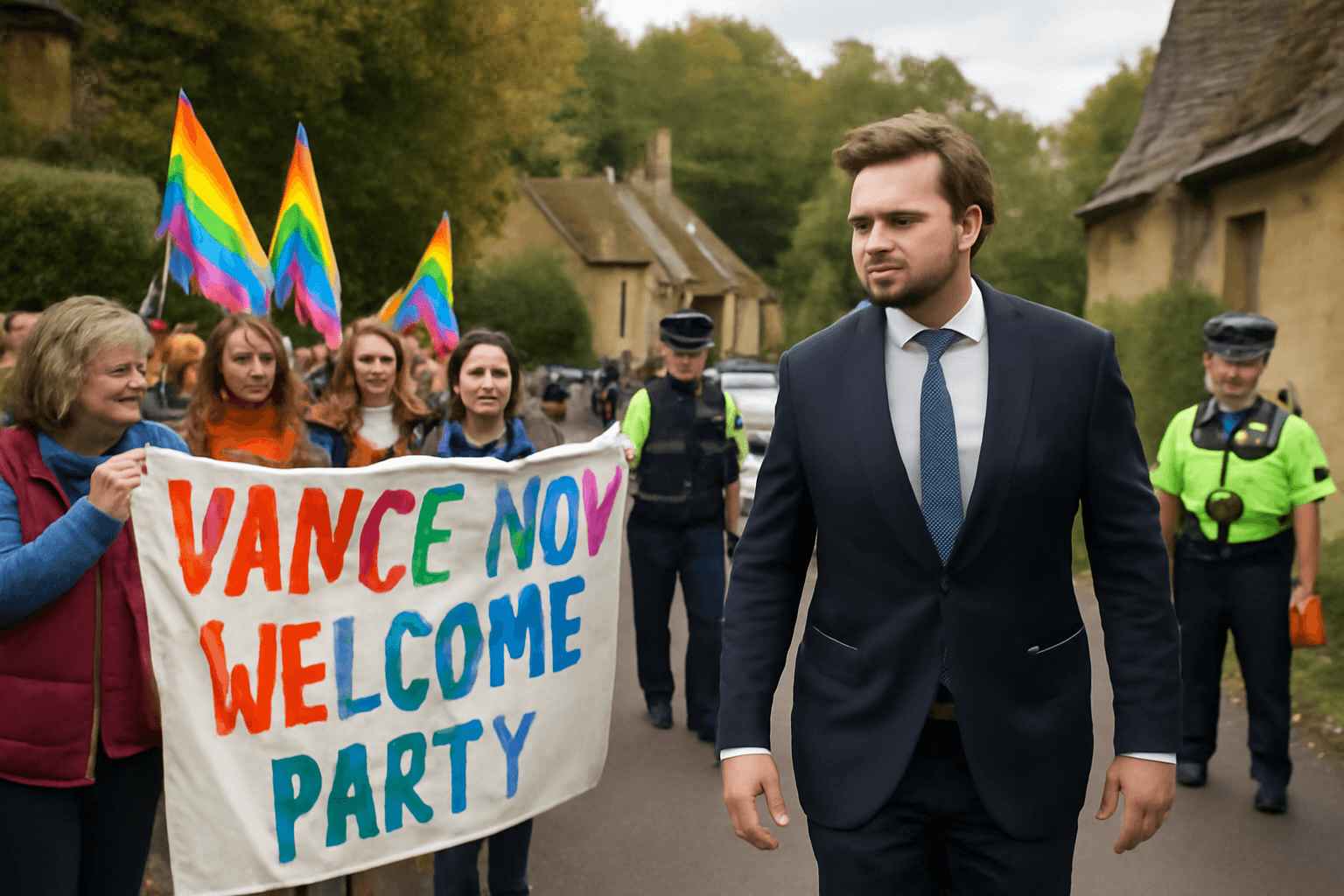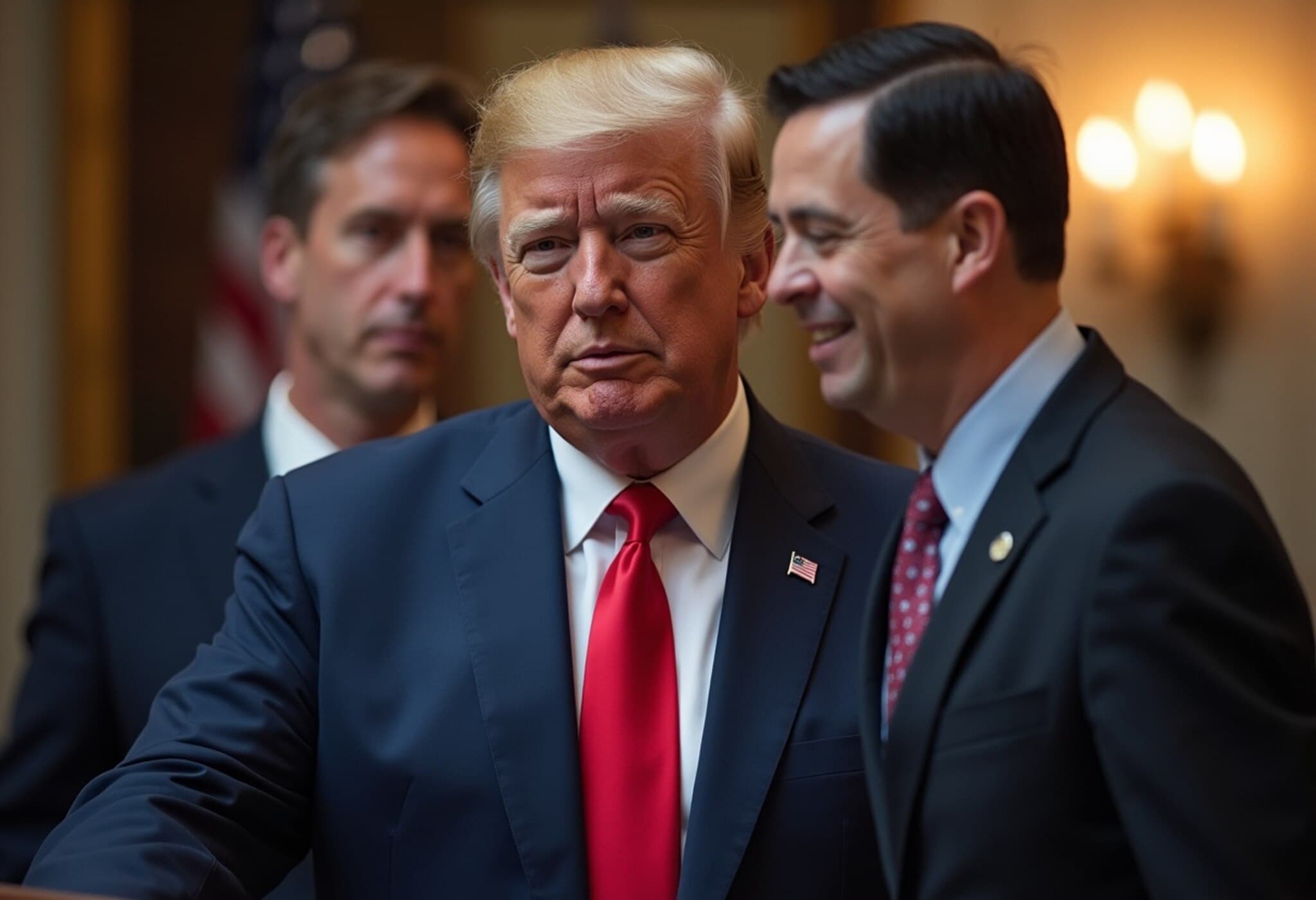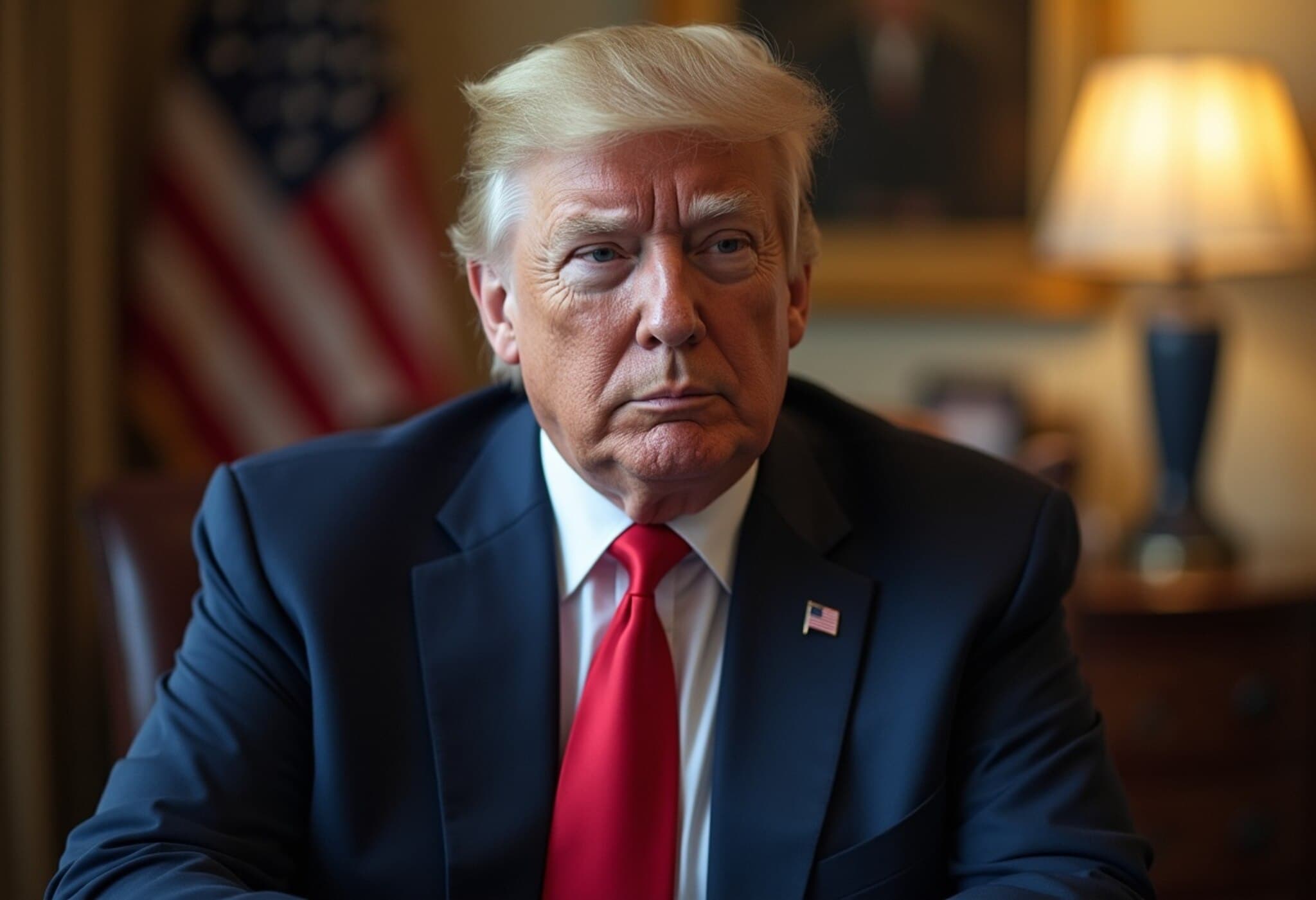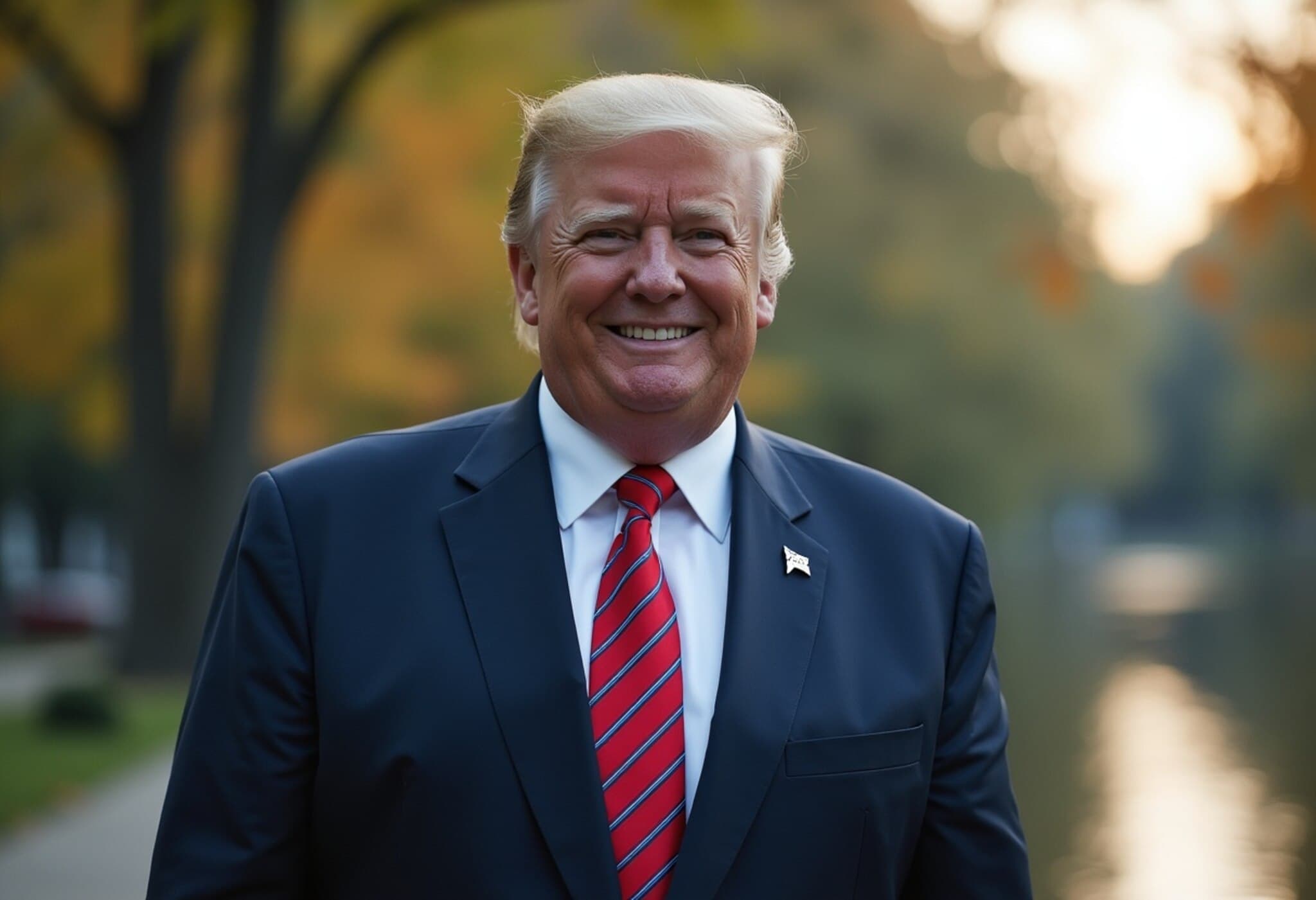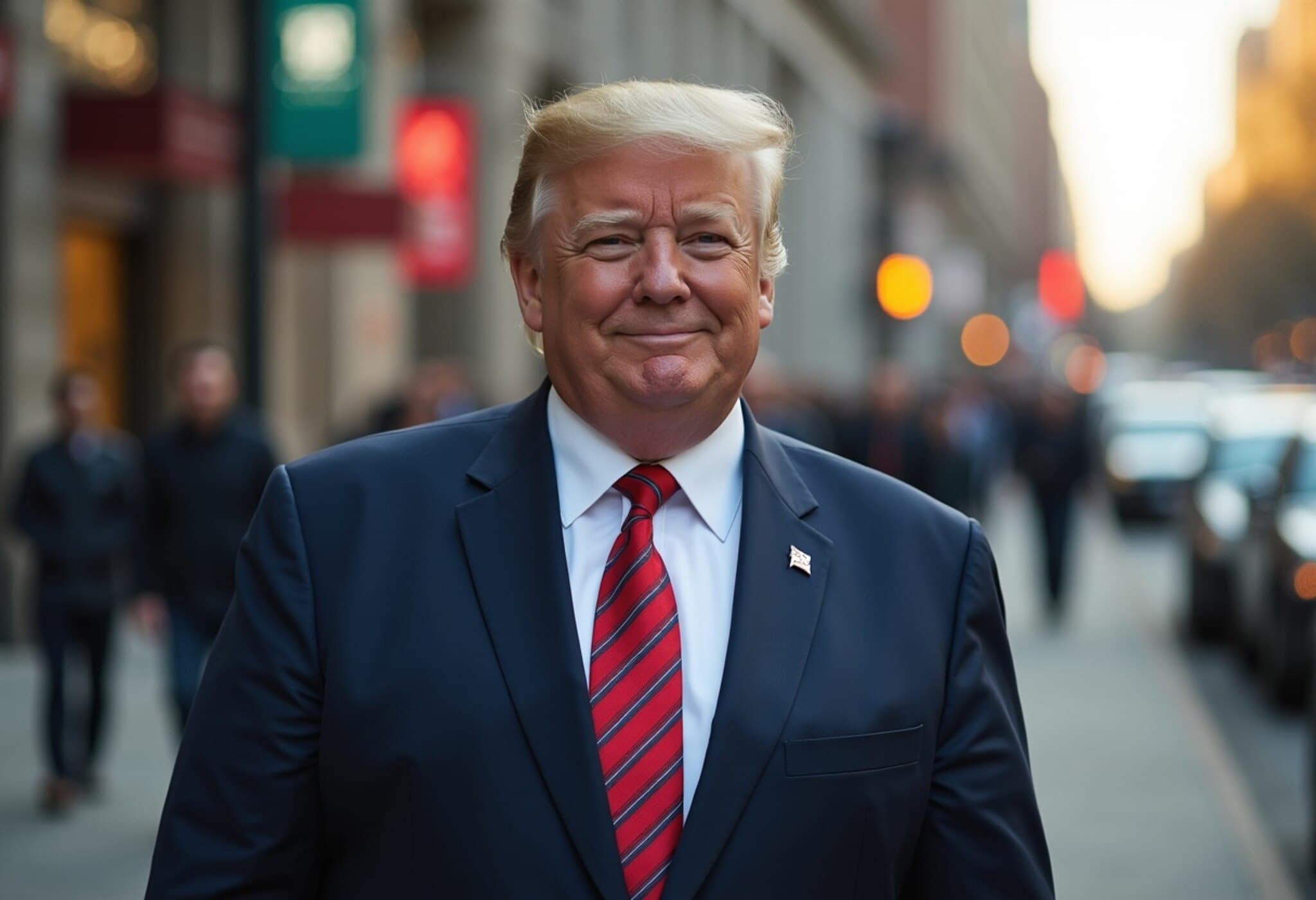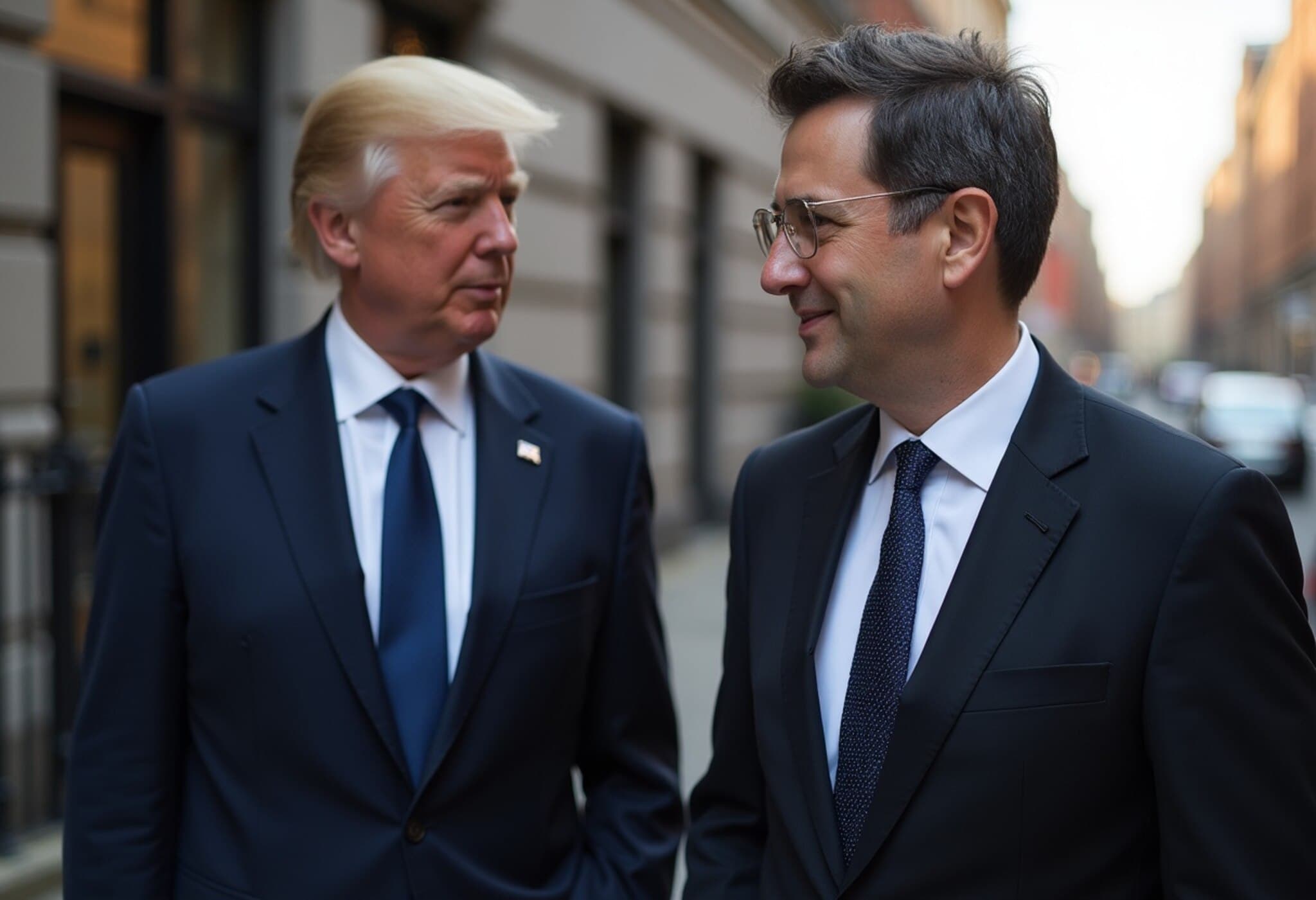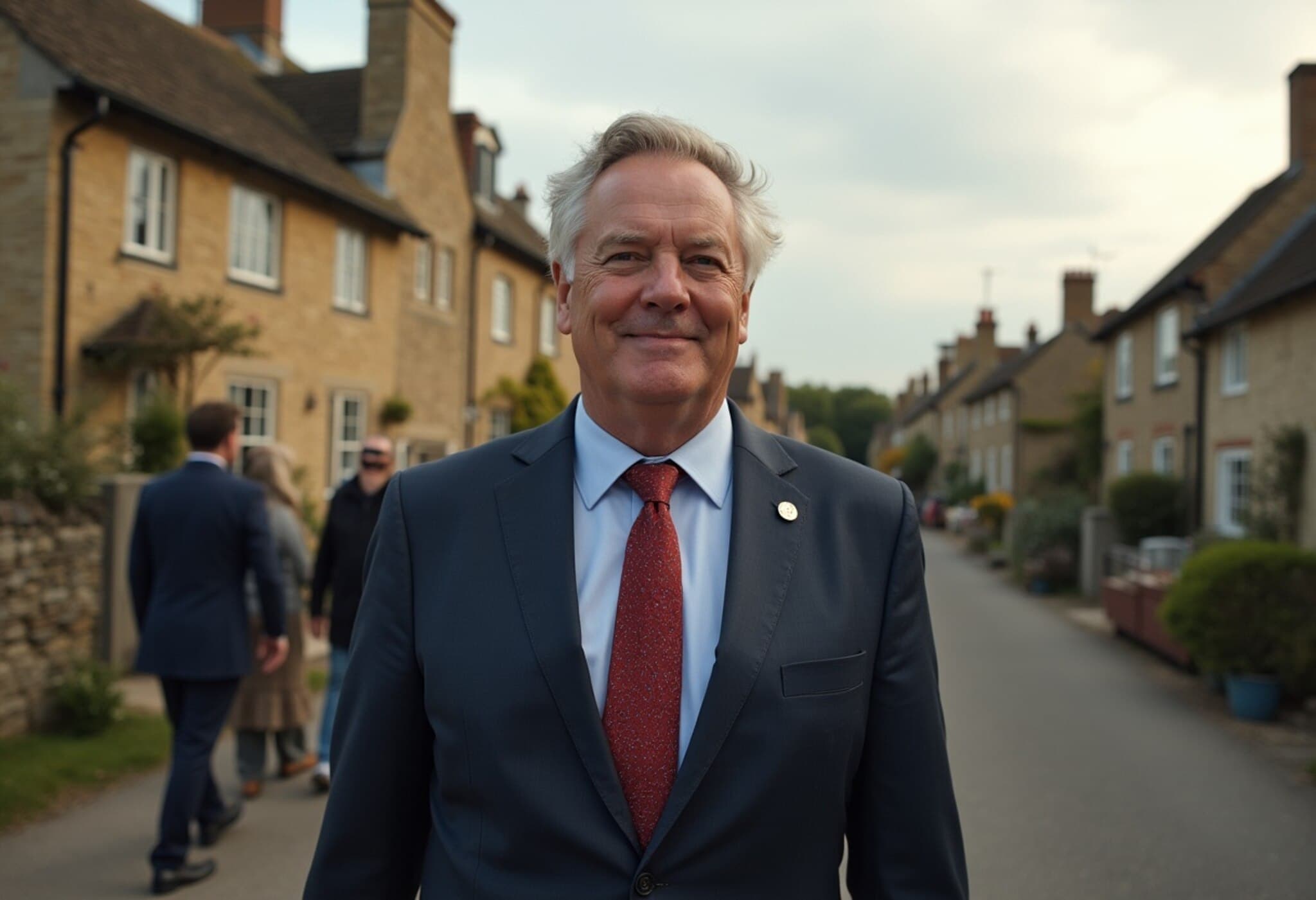Local Protesters Rally Against US Vice President JD Vance's UK Visit
JD Vance, the U.S. Vice President, stirred strong reactions during his recent summer visit to the idyllic Cotswolds region in the United Kingdom. On August 12, 2025, local residents organized a spirited protest titled the “Vance Not Welcome Party”, signaling widespread disapproval of the American official's presence.
A Chorus of Dissent in the English Countryside
As Vance’s motorcade rolled through the picturesque village streets, protesters brandished placards with messages ranging from biting satire to pointed political critique. Slogans such as "Bullies not welcome here" and "Make America moral again" echoed local frustrations not just with Vance himself but broader U.S. policies associated with his administration.
One particularly memorable protest element was a balloon and cake display featuring a caricatured bald-headed image of Vance, underscoring the mockery aimed at the vice president. Other signs referenced social media memes, including a humorous jab that “JD Vance's Netflix password is password” and commentary on his perceived behavior like “JD Vance claps when the plane lands.”
Security Measures and Local Sentiments
The visit prompted increased security, with road closures and checks affecting local residents. Despite this, organizers described the protest atmosphere as positive and vibrant. A spokesperson for the Stop Trump Coalition, the group backing the demonstration, told reporters, “It was a joyous festival of resistance. People in the Cotswolds want to exercise their democratic freedom of speech, expressing that JD Vance’s policies and rhetoric are unwelcome here.”
Approximately 80 locals took part, drawing attention on social media through shared images, videos, and memes that captured the event’s creative and humorous spirit.
Underlying Causes: Beyond a Summer Visit
While the protest was triggered by Vance’s visit, many locals cited his public criticisms of the United Kingdom and dissatisfaction with the current U.S. administration’s foreign policy stances, notably regarding the conflict in Ukraine and the humanitarian crisis in Gaza. These issues have resonated deeply with British citizens, contributing to the overall negative reception.
Political Engagement Amidst Tourism
The Cotswolds itself is a renowned destination for public figures and celebrities alike — previous visitors include former British Prime Minister David Cameron and American TV personality Ellen DeGeneres. Recently, even former U.S. Vice President Kamala Harris was spotted celebrating in the region.
During his visit, Vance also engaged in diplomacy, holding a bilateral meeting with British Foreign Secretary David Lammy in Kent following a fishing trip, emphasizing the ongoing U.S.-UK political dialogue. His itinerary includes further meetings in London as well as planned travel to Scotland.
Expert Commentary: The Diplomatic Tightrope
JD Vance’s controversial UK trip highlights the complexities U.S. officials face abroad, especially when domestic political polarizations spill over into foreign relations. As an established figure steeped in American political and cultural narratives, Vance's provocations have clearly unsettled parts of the British public.
From a policy analyst perspective, the protests underscore a growing grassroots responsiveness to foreign policies and personalities that might be perceived as divisive or critical. This phenomenon raises important questions about the role of public diplomacy and the potential collateral impact on transatlantic partnerships.
Images From the Protest
- Demonstrators holding placards with evocative slogans such as “Vance Not Welcome” and satirical images.
- A balloon display attached to a giant celebratory cake mocking Vance’s appearance.
- Protesters sporting masks of U.S. political figures, including former President Donald Trump.
- Security checkpoints and roadblocks in nearby villages to manage the vice president’s passage.
Looking Ahead: What This Means for U.S.-UK Relations
While the protests were peaceful, they reflect underlying tensions and diverging public sentiments about U.S. leadership and policies. The UK hosts several high-profile American political figures frequently, and managing local goodwill is crucial to sustaining the "special relationship" between the two nations.
Public diplomacy efforts may need recalibration to better engage local communities and bridge gaps in perception, particularly as global geopolitical challenges demand close cooperation. JD Vance’s visit offers a telling case study of how familiarity, criticism, and cultural differences can intersect on an international stage.
Editor’s Note
This protest in the Cotswolds against U.S. Vice President JD Vance serves as more than just a localized display of dissent. It illustrates the growing global scrutiny of American political figures and their policies, amplified by social media and grassroots activism. While international visits often focus on diplomacy and fostering goodwill, they can also expose rifts that invite important conversations about shared values and the nature of allied relationships. How U.S. officials engage with international audiences going forward may well influence not only policy outcomes but also the fabric of transatlantic friendship.

